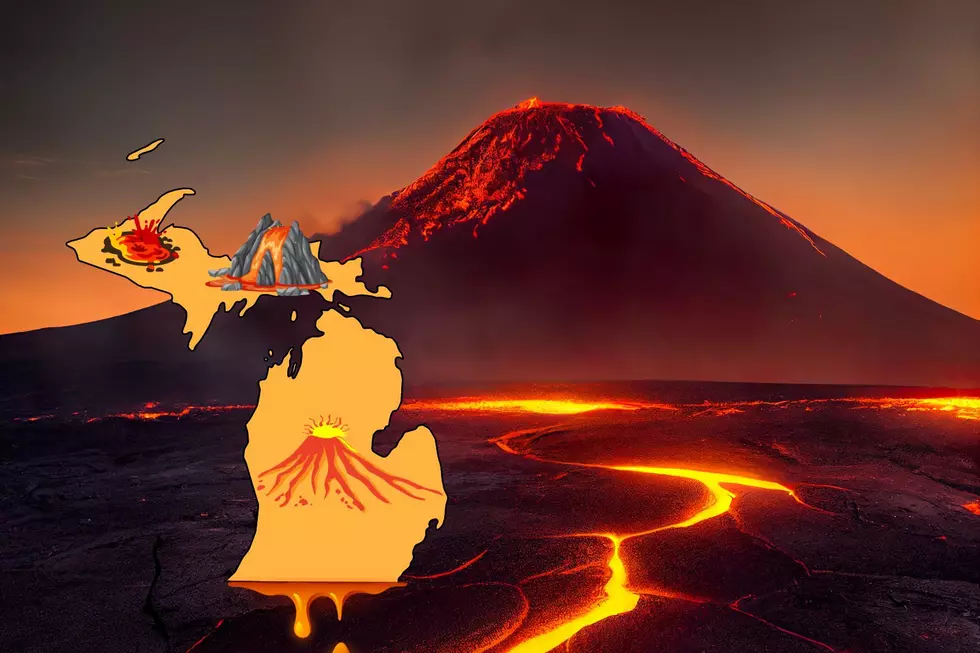
Michigan Volcanic Eruption Created Worlds Largest Magmatic Event
About a billion years ago, in a land far different from the Michigan we know today, there were no lush forests, pristine lakes, or fields of green. The Mitten State was once a fiery battleground dominated by steaming fissures, molten rocks, and flowing lava.
Related: Michigan History: What Michigan Looked Like 750 Million Years Ago
Evidence of this Hellish past can still be seen today if you know where and what to look for. According to National Geographic, the 'where' is along the Midcontinent Rift, which extends along the shoreline of Lake Superior into a horseshoe-shaped scar that stretches 1,300 miles from Lake Superior to what is now Kansas and Ohio.
The Midcontinent Rift Unveiled
Geologists attribute the Midcontinent Rift to a mantle plume, similar to how Hawaii was formed. As the continents moved a billion years ago, the area's land was 'stretched' until it ruptured, spewing basaltic lava and creating shield volcanoes.

Unlike the towering volcanoes we are more familiar with, the lava here flowed into and filled up basins, forming think stacks of basalt that can be seen in the Upper Peninsulas Greenstone Flow, where the magma reached a depth of 1,600 feet.
It's estimated that the flow created over 240,000 cubic miles of volcanic rock, which shaped much of the state's geology today. Today, volcano enthusiasts worldwide travel to Michigan's Lake Superior coast, from the Porcupine Mountains to Copper Harbor, gazing at lava flows and ancient fossils visible in the road cut.
Related: Are There Land Hurricanes? Do They Happen in Michigan?
So the next time you marvel at Michigan's beautiful landscape, remember the fiery history that shaped it.
The Biggest Lava Flow in the Country: Keweenaw Peninsula
This is Cool! See Your Michigan Home 750 Million Years Ago
Gallery Credit: Scott Clow



